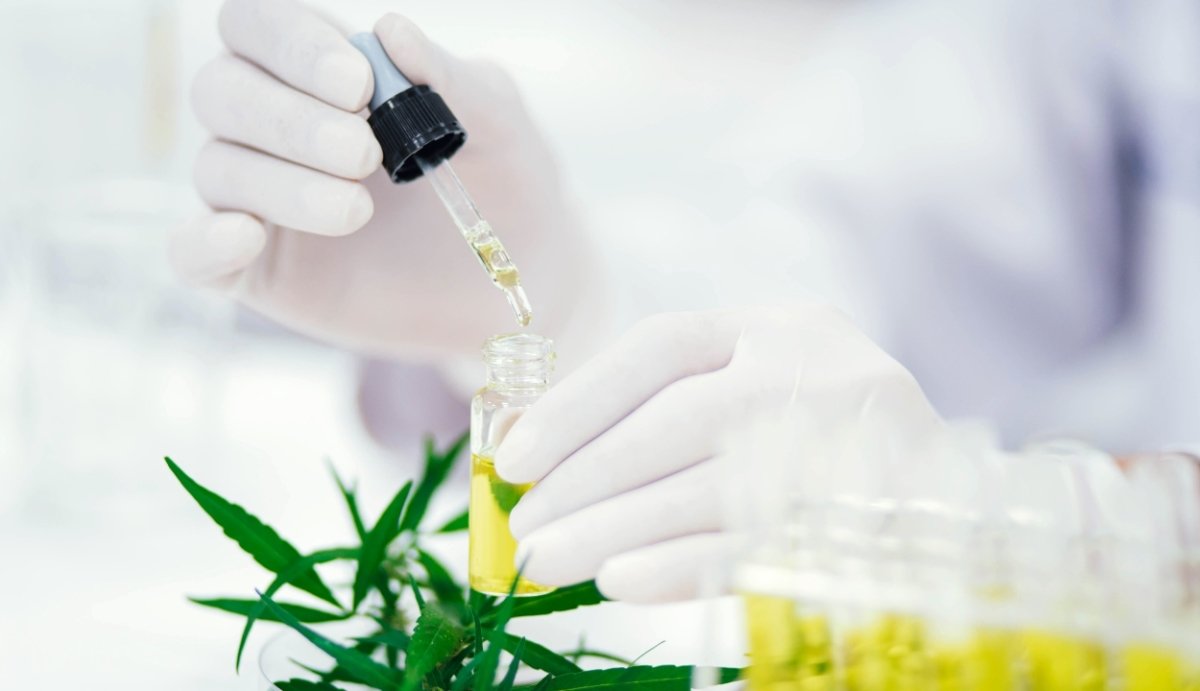Your Cart is Empty
FREE SHIPPING ON ALL ORDERS $75+
THC-O is here, and its boosted potency puts it right in the limelight. Inquiring minds want to know–where does THC-O come from? Meaning, how is THC-O extracted from hemp? What makes it legal? And is it synthetic?
All great questions, and we’re going to drop some answers below. Here’s how the THC-O extraction process results in a legal, incredibly potent, hemp-derived THC product that you can buy online.
Table of Contents
THC-O Extraction Process
Is THC-O Extraction Safe?
Is THC-O Synthetic?
Check That THC-O is Safely and Legally Made
Resources
The truth is, THC-O isn’t “extracted” per se, rather it’s made from another hemp-derived extract–CBD. There are a few extra steps involved, of course. Let’s break it down:
THC-O is made from Delta-8-THC, which is made from CBD. When the CBD is extracted from hemp material, it makes it legal according to the definitions used to legalize hemp and it's extracts in the 2018 Farm Bill.
First, hemp is grown and harvested. Then, CBD material is extracted and refined using one of many different extraction techniques available. Many different methods can be used to remove CBD from the hemp plant, but some produce a better quality extract than others.
Next, the extract undergoes a process called “isomerization,” or a chemical process in which one compound is transformed into another. In this case, CBD is converted to Delta-8-THC. Both the CBD and Delta-8 molecules contain all of the same components, just arranged in a different order. By exposing CBD to an acid, it can be rearranged into Delta-8 without adding any synthetic materials.
If you're making Delta-8-THC products, the isomerization process stops there. However, manufacturers can take this a step further and use the same isomerization process to convert Delta-8 into THC-O. Finally, the extract is carefully refined to concentrate the THC-O material and remove any unwanted chemicals, including leftover acids or byproducts.

At the end of this process, the THC-O concentrate can be used to make a variety of different THC-O products. Different carrier oils, flavors, or other cannabinoids can be added to create a product tailored to meet specific needs or dosing styles.
At the end of this production process, the THC-O material should be tested for safety and potency. A high-quality hemp manufacturer will always be willing to provide third-party lab test results to prove label accuracy.
The THC-O extraction process is not necessarily unsafe, but it is involved and requires special equipment. In other words, you shouldn’t attempt to make THC-O at home. Instead, look for a high-quality hemp manufacturer to ensure that the THC-O you buy is safe and effective.
It’s true that THC-O is not a naturally occurring cannabinoid, meaning you can’t just extract it straight from the hemp plant. However, it doesn’t quite fit the same profile as other synthetic cannabinoids, and many experts agree that its much safer than the many synthetic cannabinoid formulations circulating the streets.
If THC-O met the requirements used by the DEA to classify synthetic cannabinoids, it would be a pretty big issue since synthetic cannabinoids (aside from a few FDA approved pharmaceuticals) are listed as Controlled Substances.
However, synthetic cannabinoids, like K2 or spice, typically contain no real plant material and are instead completely synthesized in a lab. The isomerization process used to make THC-O makes it a hemp isomer, not a synthetic drug.
According to the Hemp Farming Act of 2018, or the bill that officially legalized hemp in the U.S., hemp is “the plant Cannabis sativa L. and any part of that plant, including the seeds thereof and all derivatives, extracts, cannabinoids, isomers, acids, salts, and salts of isomers, whether growing or not, with a delta-9 tetrahydrocannabinol concentration of not more than 0.3 percent on a dry weight basis.”
In other words, THC-O is a hemp isomer and falls under the federal definition used to legalize hemp.

Because THC-O is made differently than many other hemp products, it definitely can be riskier to buy. There are many safe THC-O products on the market, but not all hemp manufacturers are well versed in the isomerization process. Hemp industry regulations are still inconsistent from state to state, so you must take some steps to protect yourself as the consumer.
First, make sure that the THC-O products you choose are made from hemp material and not high-THC cannabis. Then, look for lab tests to prove label accuracy, and ensure than contaminants and leftover extraction chemicals are removed at the end of the production process.
At Vida Optima, all of our hemp-derived THC products are 100% Farm Bill compliant and are accompanied by third-party lab tests. We are happy to answer any questions you may have about our THC production process, or you can read more About Us to learn more.
For legal THC products you can buy online, check out our Elev8 Collection.
Comments will be approved before showing up.



